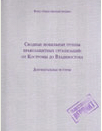
The Case of Mikhail Kosenko: Experts Have Doubts
October 30, 2012 13:11
By Natalya Taubina (in the blog Free Space)
Source: Grani.ru
Aside from participation in "mass riots", Mikhail Kosenko is being charged with the use of violence endangering the life or health of a representative of authority ( Article 318, Section 2, of the Criminal Code). However, the evidence gathered by the investigation is extremely weak. All the video recording shows is that Kosenko held the police officer by the hand without landing any blows or doing anything dangerous.
An equally important factor is the bias and unprofessionalism of the expert psychiatric evaluation. First of all, it was only carried out a month after Kosenko was put in prison, where he did not receive adequate medical care. In addition, experts at the Serbsky Institute have refused to assess the impact that being in prison was having on Mikhail's state of health.
Secondly, the evaluation does not say anything about methodology - it does not explain how this or that conclusion was reached. Forensic experts at the Serbsky Institute claim that Kosenko "is not able to properly assess his own condition, given the current forensic and investigative circumstances, and his critical faculties have been impaired". They then claim immediately after that Kosenko "is prone to dissimulation of mental disorders" (i.e. he is attempting to conceal his own illness). However, independent experts at the Independent Psychiatric Association, whom we brought in to defend Mikhail's interests, note in their conclusion that as he does not understand his illness it would be impossible for him to try and conceal it. The government expert evaluations are not objective and they are inconsistent. However, this has not prevented a conclusion from being reached about the danger posed by Mikhail to society and the need for compulsory medical treatment.
The fact that Mikhail Kosenko underwent regular observation as an out-patient at a psychoneurological clinic, made regular visits to the doctor (no less than twice a month) and followed all medical recommendations to the letter was not taken into consideration at all. That is why the doctors, all the while observing Mikhail, never tried to transfer him to hospital, let alone offer compulsory medical treatment. Mikhail was hospitalised only once, many years ago, and that was part of a routine bureaucratic process for getting registered as disabled.
Public Verdict Foundation, along with colleagues from the Independent Psychiatric Association, will challenge the results of the government experts' assessment in court, and will seek outpatient treatment for Mikhail. The latter was in fact interrupted due to Kosenko being detained, there being no psychiatrist in prison nor the necessary medication, which he began to receive only after the intervention of Public Verdict Foundation and Mikhail's lawyers. The substandard nature of the medical care will be the subject of a complaint to the European Court of Human Rights being prepared by Public Verdict Foundation.






